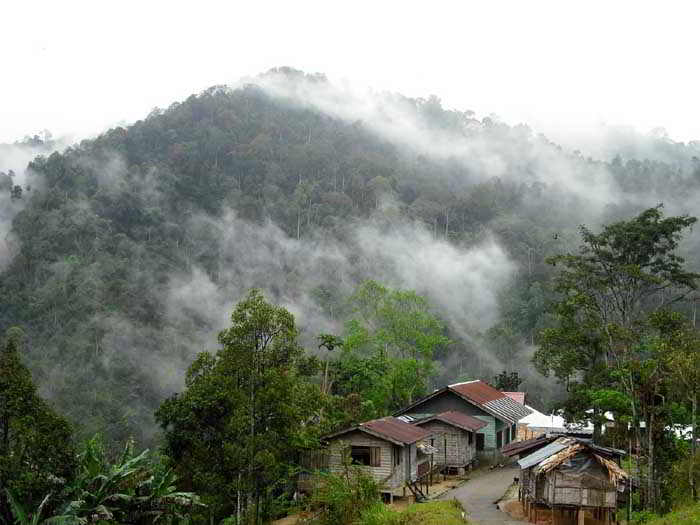My favourite place in Malaysia
I’ve lost track of how many times I’ve visited the Cameron Highlands over the years. Hundreds? Maybe, but none of the trips have been for the ‘normal reasons’ such as the cool air or to visit the tea plantations. My motivation has been to study the wildlife, particularly the insects. These trips have allowed me to make friends with some of the people in the towns and meet dozens of Orang Asli, the aboriginal inhabitants of the area. I have trekked in the jungle, driven along remote dirt tracks, and climbed the hills. So I have got to know the place well.
This first post will be a brief introduction to the Cameron Highlands. Later blogs will cover different aspects, such as the insects, food, sights and the changes I have encountered over the years. If you have been enjoying my photos of insects on Facebook (Exotic Insects) these posts will give you some background to where they came from. Even if bugs don’t interest you, the Cameron Highlands is a beautiful and fascinating hill station for many other reasons.
Sir Cameron lost the Highlands!
The Highland’s saga started in 1885 when Sir William Cameron was on a mapping expedition and stumbled across the plateaus that now bear his name. In a classic colonial screw-up the location wasn’t noted on his maps and the location was ‘lost’, probably to the delight of the Orang Asli villagers who had lived there for centuries. It was not ‘rediscovered’ until the 1920s and work soon began on building the hill station that is so popular today.
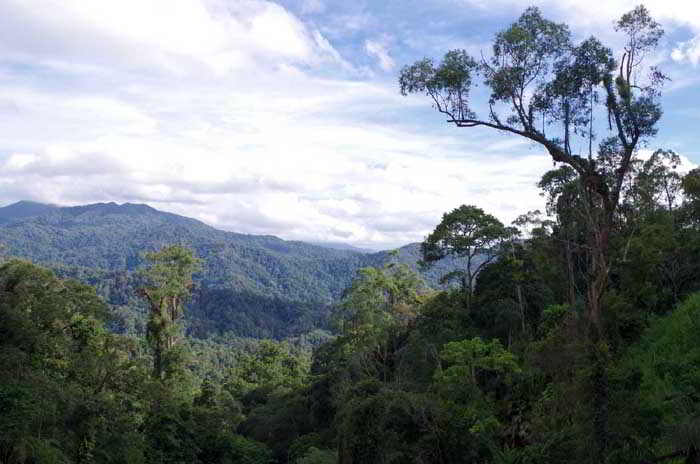
What makes the Highlands such a great place? That depends on who you are and your interests. For me, it’s my favourite destination in Malaysia due to its abundance of greenery and wildlife. My daughter, on the other hand, dislikes the windy road up and is bored rigid when she gets there. Everyone’s different but there must be a reason over 720,000 people made the trek in 2014.
These visitors generally visit for the:
- Wildlife
- Climate
- Sights and scenery
Tedious drive with lots to see
The drive from Tapah in the lowlands up to Tanah Rata takes about 2 hours. It is a tortuous drive along a narrow, windy road where you might get stuck behind an ancient lorry grinding its gears as it struggles up the hill. But alongside the road is kilometre after kilometre of jungle. Every conceivable shape and size of leaf hangs from shrubs and trees, some a hundred or more metres tall. A profusion of vines snake around trunks, and ferns hang precariously from branches.
Open the car window and your ears will be assaulted by a deafening, screeching cacophony of insects. Damp, peaty smells hang in the air. Gorgeous butterflies drift past. Scores of birds chirp, unseen in the treetops. It’s a rush for the senses – if you like nature.
Wildlife in the Cameron Highlands
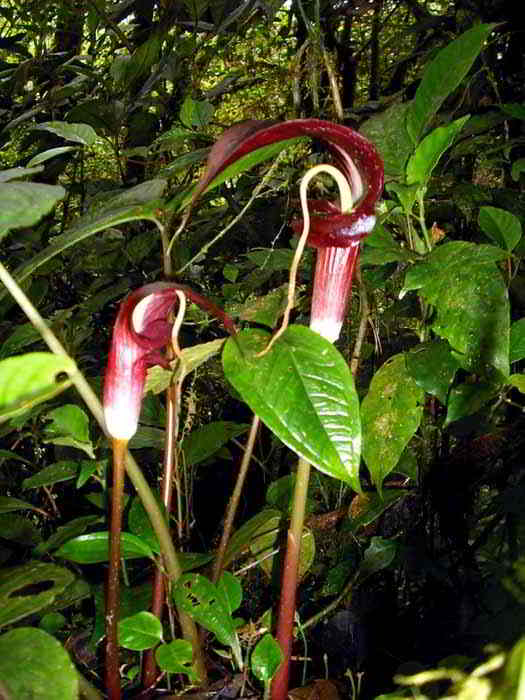
The road is heavily travelled by cars, trucks and buses and yet stick insects nearly half a metre long still lurk among the bushes on the roadside. When you consider that Cameron Highlands covers an area of 700 square kilometres (270 square miles), much of which is untouched, it is still possible to dream of spotting tigers!
About 17 years ago, on the old dirt road running north of Kampong Rajah, I missed seeing a tiger by mere minutes. It had been inadvertently caught in a trap by some Orang Asli. For some reason, they thought I was a government official and quickly removed all evidence of their catch. So close! A friend of mine from Tanah Rata still bears the scars from an elephant attack a few years later on the same stretch of road while he was trying to photograph a small herd.
Sadly, there has been uncontrolled destruction of the jungle, escalating in recent years. So the chances of seeing any of these larger mammals today are slim. However, smaller mammals, reptiles, birds and insects still flourish. And it doesn’t take much to find them – or at least signs of them.
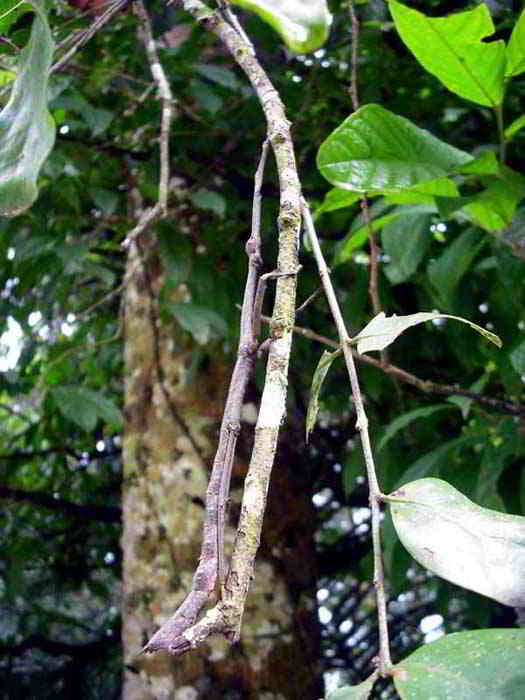
In towns like Tanah Rata, Brinchang and even Ringlet, tour guides will organise walks into the jungle. The length and difficulty of these walks is your choice. With a knowledgeable guide, you should find and photograph some amazing creatures and plants. The giant carrion flower, Rafflesia, grows nearby and, in the right season and for a fee, someone will gladly show you where they bloom.
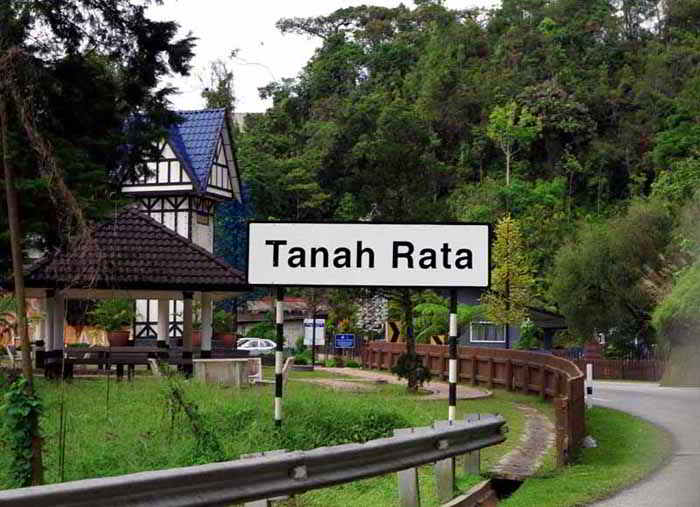
There are many marked trails that will take you into the jungle to various waterfalls or up the hills, such as Gunung Jasar. The habitat is under threat but there is still ample to experience and enjoy.
Climate
For most visitors, the Cameron Highlands are synonymous with Tanah Rata, a town sitting at 1,440 metres (4,720 feet) above sea level. The temperature is cooler here than in the lowlands and the humidity not as oppressive. This has made the town a favourite for those escaping from the sweltering heat in Kuala Lumpur and other cities.
With the lower temperatures comes the ability to grow a wide variety of plants. This has led to the area becoming the vegetable growing centre for Malaysia and Singapore. I rarely return home without several punnets of strawberries and a potted plant.
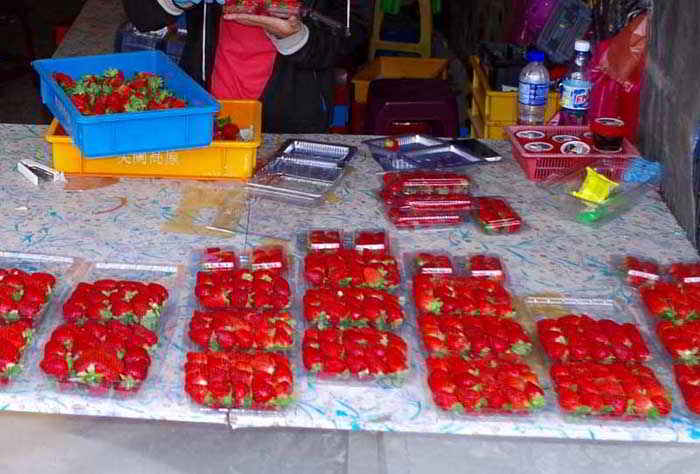
The climate is not as cool as it used to be. Even as little as twenty years ago, nights were cool enough to warrant a log fire. Not so today. If a log fire is lit, it is primarily for show rather than necessity. Overall though, it is cooler and I never venture up the hill without a sweat shirt.
Sights and scenery
Another reason people flock to the Highlands is the variety of things to do and see. On the road from Tapah to Tanah Rata you will come across Orang Asli villages, some modern but others traditional wooden dwellings on stilts. The Orang Asli have also set up ramshackle stalls along the road where they sell honey from wild bees, odd-looking fruits from deep inside the jungle and a few handicrafts.
In Tanah Rata, there are souvenir shops and restaurants. Past the busy town of Brinchang are the butterfly farms, flower nurseries and cactus shops. Pick your own strawberries or visit one of the many markets for fresh produce.
Gunung Brinchang is the second tallest peak in the Cameron Highlands at 2,031 metres (6,666 feet) high. You can walk to the top from the town of Brinchang. The recent news link attached below shouldn’t be cause for concern. It’s an arduous but safe trek if you follow the marked trails and use common sense.
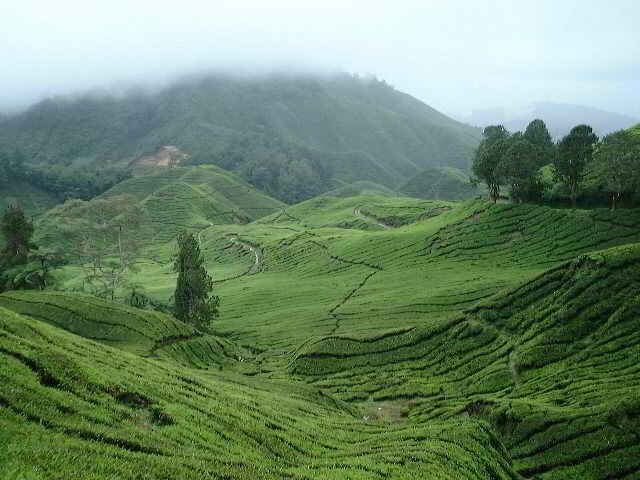
Traffic Jams at 1,600 metres above sea level
A word of warning – check for any local holidays before even thinking of a trip to the Cameron Highlands. It is a magnet for Malaysians in the holiday season. The roads are seriously congested and travelling becomes a nightmare. I had no choice but visit a friend during one holiday. The journey from Tanah Rata to Brinchang, which might take 10 minutes on a normal day, took over two hours!
Just the start…At the beginning of this post I said this would be a brief introduction. With so much to discuss, it has been anything but brief! Hopefully, it has given you an insight into the Cameron Highlands. In future posts I will go into more detail. For example, the next blog will focus on the insect trade and the Orang Asli.
I should point out that, as with anywhere, things change. Logging and landslides are common problems. Orang Asli life is evolving in line with modern expectations. It is not the same pristine place it was twenty years ago and I will cover some of these changes at another time. But for now, it’s still a great place to visit. Happy travels.
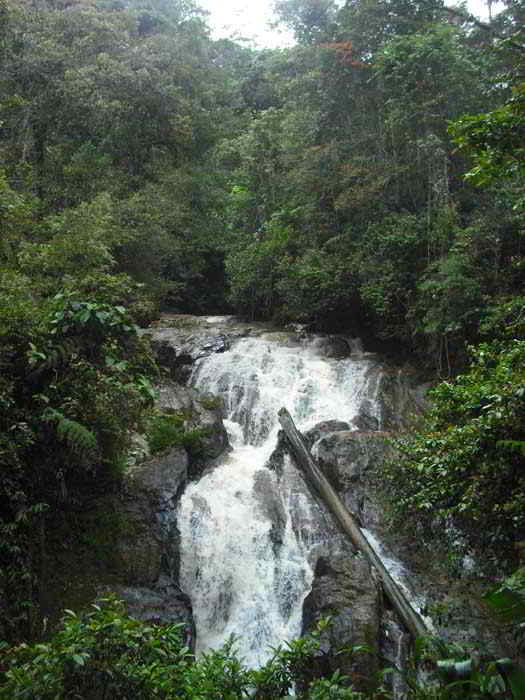
News Report from 13th December 2016 about hikers lost on Gunung Brinchang:
https://www.thestar.com.my/news/nation/2016/12/13/rescued-aussie-hikers-lost-in-cameron-highlands/
More information:
https://en.wikipedia.org/wiki/Cameron_Highlands_District
